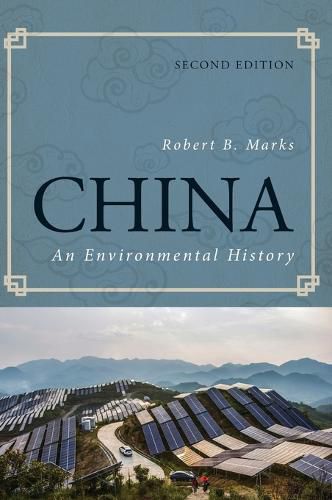Readings Newsletter
Become a Readings Member to make your shopping experience even easier.
Sign in or sign up for free!
You’re not far away from qualifying for FREE standard shipping within Australia
You’ve qualified for FREE standard shipping within Australia
The cart is loading…






This deeply informed and clearly written text provides a comprehensive and comprehensible history of China from prehistory to the present. Now updated to include recent political events and scientific research, the book focuses on the interaction of humans and their environment. Tracing changes in the physical and cultural world that is home to a fifth of humankind, Robert B. Marks illuminates the paradoxes inherent in China’s environmental narrative, demonstrating how historically sustainable practices can, in fact, be profoundly ecologically unsound. The author also reevaluates China’s traditional heroic storyline, highlighting the marginalization of nature and contacts with other peoples that followed the spread of Chinese civilization while examining the development of a distinctly Chinese way of relating to and altering the environment. Unmatched in his ability to synthesize a complex subject clearly and cogently, Marks has written an accessible yet nuanced history for any student interested in China, past or present, or indeed in the world’s environmental future.
$9.00 standard shipping within Australia
FREE standard shipping within Australia for orders over $100.00
Express & International shipping calculated at checkout
This deeply informed and clearly written text provides a comprehensive and comprehensible history of China from prehistory to the present. Now updated to include recent political events and scientific research, the book focuses on the interaction of humans and their environment. Tracing changes in the physical and cultural world that is home to a fifth of humankind, Robert B. Marks illuminates the paradoxes inherent in China’s environmental narrative, demonstrating how historically sustainable practices can, in fact, be profoundly ecologically unsound. The author also reevaluates China’s traditional heroic storyline, highlighting the marginalization of nature and contacts with other peoples that followed the spread of Chinese civilization while examining the development of a distinctly Chinese way of relating to and altering the environment. Unmatched in his ability to synthesize a complex subject clearly and cogently, Marks has written an accessible yet nuanced history for any student interested in China, past or present, or indeed in the world’s environmental future.